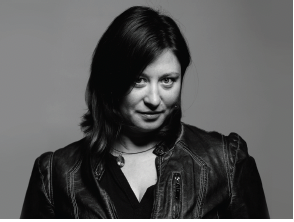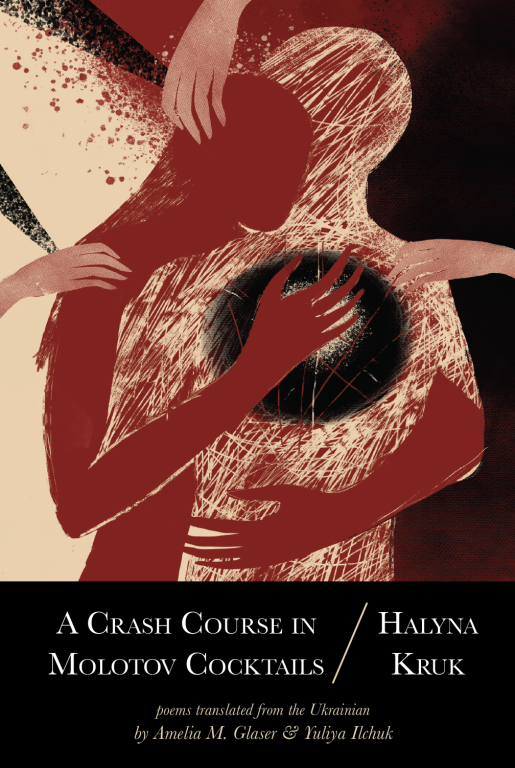
Halyna Kruk was born in Lviv, Ukraine. She is the author of five books of poetry, a collection of short stories, and four children’s books. She has garnered multiple awards for her writing, including the Bohdan Ihor Antonych Prize, the Polish Gaude Polonia Fellowship, the Bookforum Best Book Award, and the Kovaliv Foundation Prize for Prose. She has served as vice president of the PEN Ukraine, holds a Ph.D in Ukrainian literature, and is professor of European and Ukrainian baroque literature at the Ivan Franko National University in Lviv.

Judges’ Citation
These poems of witness may be wrought from a horrendous war, composed in times of turmoil and void of leisure, yet the Ukrainian poet Halyna Kruk’s mastery is evident on every page, the keenly observed scenes and perplexing details visualizing the dire situation of her country but also its people’s defiance: ‘war doesn’t suit the rest of the world / like mutilation with an evening gown: / the look’s too heavy / the language too sharp / the details too brutal’.
These poems of witness may be wrought from a horrendous war, composed in times of turmoil and void of leisure, yet the Ukrainian poet Halyna Kruk’s mastery is evident on every page, the keenly observed scenes and perplexing details visualizing the dire situation of her country but also its people’s defiance: ‘war doesn’t suit the rest of the world / like mutilation with an evening gown: / the look’s too heavy / the language too sharp / the details too brutal’. Kruk’s poems grapple with the bare existential questions, every so often turning into prayer, into conversations with a merciless god, pleading to not ‘quiet the voice of anger’. What do you take with you when ‘even keys / are non-essential’? How to maintain hope when realizing that human warmth may be deadly in times of war and its thermal imaging devices, how to cope with the loss of certainties while grasshoppers keep on chirping and shells are landing on the fields like birds of passage? Sometimes tender, offering surprising moments of stubbornly persisting beauty, sometimes bitter and hard, Kruk’s poems are also a reminder for the rest of the world to ‘take us in, like unpleasant medicine’. A necessary and powerful collection.
Selected poems
by Halyna Kruk
choosing a thermal sensor or night-vision device,
you scroll, in wonder, through all these models,
designed for tracking animals,
and spotting shy birds in the wild,
and then, in horror, through those designed for hunting,
for neither beast nor bird deserves this
not the elk, not the stiff carcass of a hare, not the delicate body of a roebuck
flashing past the thermal imager, confused and uncertain:
where to flee? who’s in my rightful place?
a dog’s hot body shows redder than a human’s
how often did it warm you in the trenches, sheltering
from the roaring missiles
the gophers, weasels, moles are so small and unremarkable,
they don’t count
taking aim, you must remember
human warmth is special —
it can kill
Copyright © 2023, Amelia M. Glaser and Yuliya Ilchuk, translated from the Ukrainian written by Halyna Kruk, A Crash Course in Molotov Cocktails, Arrowsmith Press
human warmth
the Ukrainian written by Halyna Kruk
Copyright © 2023, Amelia M. Glaser and Yuliya Ilchuk, translated from the Ukrainian written by Halyna Kruk, A Crash Course in Molotov Cocktails, Arrowsmith Press
mama – i’m a – pit
the Ukrainian written by Halyna Kruk